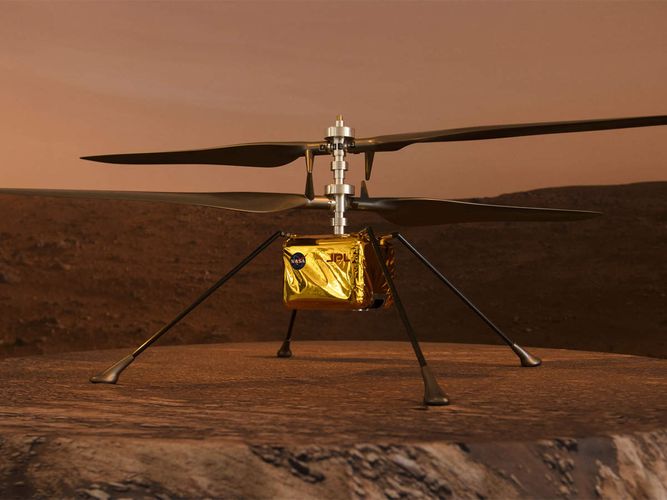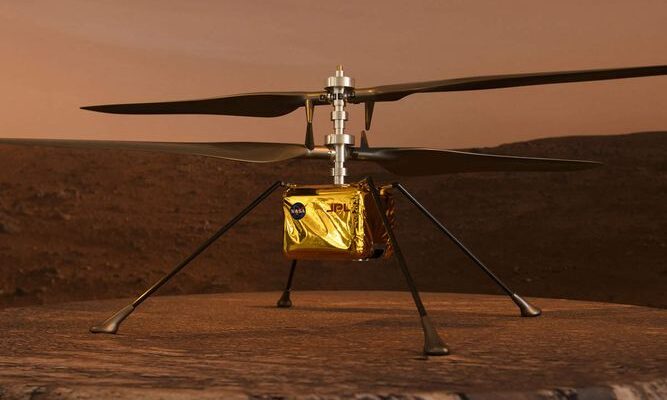
The American space agency has successfully flown a small helicopter on Mars.
The drone, called Ingenuity, was airborne for less than a minute, but Nasa is celebrating what represents the first powered, controlled flight by an aircraft on another world.
Confirmation came via a satellite at Mars which relayed the chopper’s data back to Earth.
The space agency is promising more adventurous flights in the days ahead.
Ingenuity will be commanded to fly higher and further as engineers seek to test the limits of the technology.
The rotorcraft was carried to Mars in the belly of Nasa’s Perseverance Rover, which touched down in Jezero Crater on the Red Planet in February.
“We can now say that human beings have flown a rotorcraft on another planet,” said a delighted MiMi Aung, project manager for Ingenuity at Nasa’s Jet Propulsion Laboratory (JPL) in Pasadena, California.
“We’ve been talking for so long about our ‘Wright Brothers moment’ on Mars, and here it is.”
This is a reference to Wilbur and Orville Wright who conducted the first powered, controlled aircraft flight here on Earth in 1903.
Ingenuity even carries a small swatch of fabric from one of the wings of Flyer 1, the aircraft that made that historic flight at Kitty Hawk, North Carolina, more than 117 years ago.
There were cheers in the JPL control center as the first photos of the flight arrived back on Earth. In the background, MiMi Aung could be heard saying: “It’s real!”
To claps from her colleagues, she tore up the contingency speech to have been used in the event of failure.
The demonstration saw the Mars-copter rise to about 3m, hover, swivel, and then land. In all, it managed almost 40 seconds of flight, from take-off to landing.
Getting airborne on the Red Planet is not easy. The atmosphere is very thin, just 1% of the density here on Earth. This gives the blades on a rotorcraft very little to bite into to gain lift.
There’s help from the lower gravity at Mars, but still – it takes a lot of work to get up off the ground.

Comments